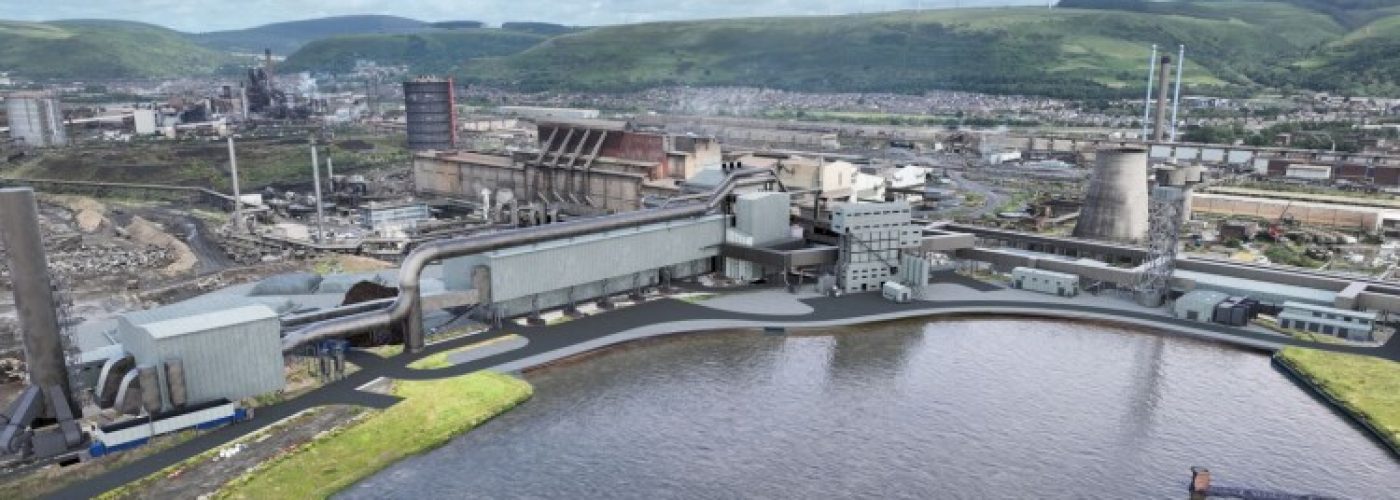Construction has officially commenced on one of the world’s largest electric arc furnaces (EAF) in Port Talbot, Wales — a cornerstone project in the UK’s move toward sustainable steel production.
Senior executives from Tata Steel, alongside UK Government ministers and leading contractors, gathered on site today for the groundbreaking ceremony at the state-of-the-art facility.
The new EAF will melt UK-sourced scrap steel to produce three million tonnes of steel annually, significantly reducing reliance on traditional blast furnaces. As part of Tata Steel UK’s wider decarbonisation strategy, the project also includes advanced ladle metallurgy systems and major infrastructure upgrades.
The scheme, led by principal contractor Sir Robert McAlpine, is backed by a robust supply chain including Darlow Lloyd & Sons, Mii Engineering, Skelton Thomas, Wernick Buildings, Andrew Scott Ltd, and Systems Group.
With a total investment of £1.25bn — including £500m of support from the UK Government — the transformation aims to deliver low-carbon steelmaking at scale. Once operational by the end of 2027, the EAF is expected to cut Port Talbot’s carbon emissions by around 90%, the equivalent of five million tonnes of CO₂ annually, while safeguarding 5,000 UK jobs.
Speaking ahead of the ceremony, Tata Group Chairman Natarajan Chandrasekaran said:
“This is an important day for Tata Group, Tata Steel, and the UK. Today’s groundbreaking marks not only the beginning of a new electric arc furnace but the dawn of a cleaner, greener era of manufacturing in Britain. At Port Talbot, we are laying the foundations for a more sustainable future — supporting jobs, driving innovation, and demonstrating our commitment to responsible industry leadership.”
“This initiative is part of Tata Group’s wider investment in the UK — spanning steel, automotive, and technology — and reflects our deep and enduring partnership with the country.”
Secretary of State for Wales, Jo Stevens, added:
“The UK Government acted decisively to secure the future of steelmaking in Port Talbot. With £500m invested in Tata’s transition and £80m to support workers and the wider community, we’re ensuring this vital industry thrives for generations to come.”
“This project is just one element of our wider Steel Strategy, which includes £2.5bn in investment to rebuild the UK’s steel sector, protect jobs, and drive growth. With new opportunities in floating offshore wind, the Celtic Freeport, and local regeneration, Port Talbot has a bright and promising future.”
Building, Design & Construction Magazine | The Choice of Industry Professionals





